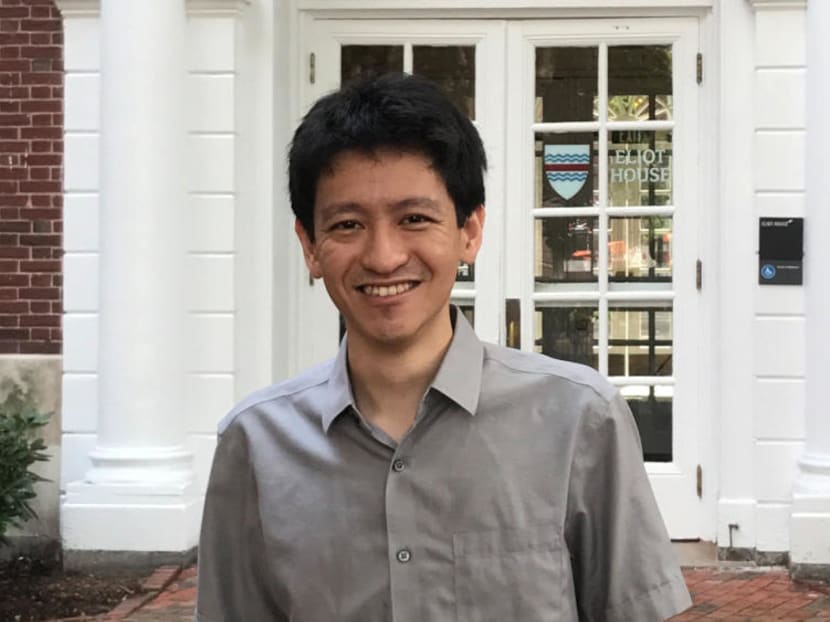AGC’s order to serve papers on Li Shengwu should be voided, his lawyers say
SINGAPORE — The lawyers of Mr Li Shengwu, nephew of Prime Minister Lee Hsien Loong, said that an order by the Attorney-General’s Chambers (AGC) to personally serve him papers outside of Singapore for contempt of court cannot be considered valid.

The Attorney-General’s Chambers is taking action against Mr Li Shengwu for contempt of court. Mr Li is the son of Mr Lee Hsien Yang and nephew of Prime Minister Lee Hsien Loong.
SINGAPORE — The lawyers of Mr Li Shengwu, nephew of Prime Minister Lee Hsien Loong, said that an order by the Attorney-General’s Chambers (AGC) to personally serve him papers outside of Singapore for contempt of court cannot be considered valid.
This comes after Mr Li filed an application on Dec 22 challenging the order that the AGC obtained from the High Court, before it launched contempt of court proceedings against him in August last year.
After a pre-trial conference discussing the matter on Thursday (Jan 4), Mr Li’s lawyers, Mr Abraham Vergis and Ms Asiyah Arif of Providence Law, issued a statement on his behalf, saying that the AGC needs to show that the contempt proceedings were brought under a “written law” or were about enforcing a “written law”.
In a footnote in the statement, the lawyers noted that the Administration of Justice (Protection) Act came into force on Oct 1 last year, months after Mr Li made the allegedly offending remarks in a private Facebook post.
Mr Li, 32, a junior fellow at Harvard University, is based in the United States.
Under the new Act, those who commit contempt of the High Court or Court of Appeal can be fined up to S$100,000, and/or jailed up to three years.
“We say that criminal contempt in Singapore at the time of Shengwu’s Facebook post was not based on ‘written law’ (for example, an Act of Parliament)," the lawyers said on Thursday, having studied the “novel grounds” the AGC had used to justify its serving of papers outside of Singapore a month ago.
They then argued that the AGC had “wrongly relied” on a section of the Supreme Court of Judicature Act, “even if the criminal contempt proceedings were brought under a ‘written law’ or about enforcing a ‘written law’”.
Furthermore, the AGC “incorrectly relied” on a rule of court to serve the court papers on Mr Li outside of Singapore when it “does not apply to criminal contempt proceedings”.
On July 15 last year, Mr Li wrote in a Facebook post that was shared with “friends only” that the Singapore Government was “litigious” and has a “pliant court system”. His comments accompanied a Wall Street Journal article he posted on the dispute between his father Lee Hsien Yang, his aunt Lee Wei Ling and PM Lee over the Oxley Road house of the late founding Prime Minister Lee Kuan Yew, who was Mr Li’s grandfather.
Six days after the comments were made, the AGC wrote to Mr Li, asking him to “purge the contempt” by deleting the post and issuing a written apology on his Facebook page. Mr Li did not do so.
The AGC then filed an application for permission to start contempt of court proceedings in the High Court, which was granted on Aug 21.
On Thursday, the court directed that Mr Li is to file and serve his submissions in support of his application by 5pm on Feb 1, and the AGC is to submit a reply by 5pm on March 1.
Mr Li then has until March 15, 5pm, to make further reply submissions.
The hearing for the application and another pre-trial conference would be scheduled in due course, Mr Li’s lawyers said.
*CORRECTION: An earlier version of this article stated that Mr Li’s lawyers said the AGC’s order should be voided because the Administration of Justice (Protection) Act came into force only on Oct 1 last year, after Mr Li’s alleged offence surfaced. That is incorrect. The lawyers’ argument was that the AGC needed to prove that the contempt proceedings were brought under a “written law”, or were about enforcing a “written law”. We are sorry for the error.








